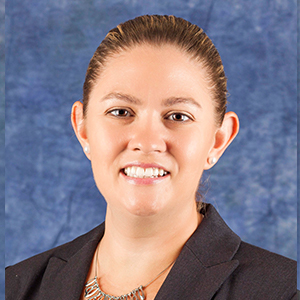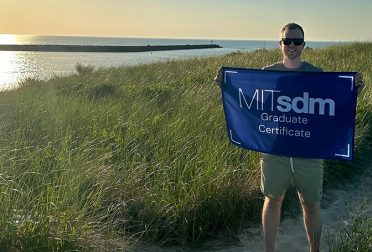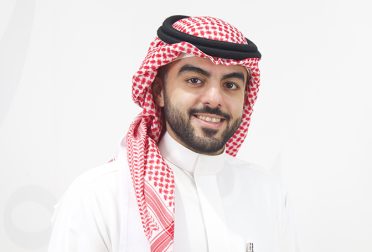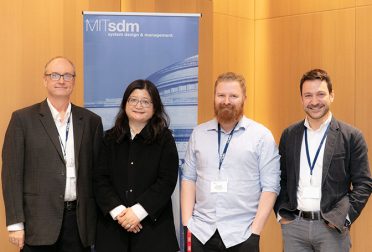Kate Cantu
SDM ’15
B.A. Chemistry
M.B.A. Project Management
Selected by her employer, the United States Air Force, Kate Cantu was given the opportunity to join the 2014 SDM cohort as a professional development opportunity, building on her role as a program manager.
“I always tell people, despite the Air Force selecting me, it was an absolute dream,” Kate said. “It is an amazing program that aligns with everything I do for the Air Force and is applicable to a broad range of people, whether they are tech experts wanting to grow, or if they skew more to the side of being program managers that want to grow their development to be better managers of complex technical systems.”
A wife, a mom, and a military officer, Cantu completed the program in one year, noting she still found time for extracurriculars and a whole lot of fun even on her expedited path.
What are the key things you learned at SDM that you routinely use in your work today?
SDM provides three perspectives on managing a large complex technical system; you look at it from a system architecture perspective, a system engineering perspective, and a program management perspective, and all the while you’re thinking about how can I combine these three to get there. I do that on a daily basis now. I look at things differently, considering both the architecture and system engineering perspective in addition to my program management background, for every decision, every day.
How did the SDM program change your job trajectory? Did your career goals change after SDM?
These types of opportunities are limited in the Air Force, but having this program and experience on my record demonstrates to my leadership that I have the ability to lead complex technical programs, which also makes me more competitive for future opportunities. Not only does the Air Force send us to these types of programs for our development, but so that we can bring these concepts back and share them more broadly. More than anything, I want to help others learn to broaden their horizons the way SDM helped me, so our future Air Force leaders can integrate this structure of thinking into their leadership toolset.
Completing this program has also made me more confident about my options after I retire from the Air Force. I have always thought of myself as a program manager, but this has taught me that I can be a systems engineer, I can be a systems architect, I can go into academia. I am no longer pigeonholed into program management because of my background.. It has made me realize how much, all these things are interdependent and how relevant my program management experience is to those other disciplines, and it’s given me confidence that my skills could be applied in many different ways in the future.
What’s a special project or moment you remember from your time at MIT?
For my engineering classes, I ended up working on a CubeSat product with Professor Kerry Cahoy in the AeroAstro department, where we were competing to build a CubeSat to launch on the first NASA space launch system (SLS). I got to lead that project for the year that I was there, and we won second place in that stage of the competition. Ultimately, they shifted the research to other projects that were better funded, including some supporting Air Force research, but it was the coolest experience ever, and I got engineering credit for it.
Being on campus, I loved all of the opportunities outside of the SDM core. We had astronauts coming in and just doing evening chat sessions. We had people from different NASA programs come in and do talks about the work they were doing for Mars rovers or for New Horizons. The evening sessions and the seminars and the things you could participate in with all the other MIT students were just amazing. Probably the most fun event was when a few of us SDM students built a boat and paddled ourselves across the Charles River for the MIT 150th Crossing the Charles event. The work was always hard, but we sure played hard too.
What would you say is the value proposition of a degree in engineering and management?
A typical engineering master really stovepipes you into a future as an engineer but it doesn’t prepare you to grow into a management position. A typical MBA doesn’t prepare you for overseeing engineers or a project doing really good technical work. SDM is a nice blend because you can still take electives in the engineering department to enhance your engineering knowledge, but you are also building on your management skills through classes at Sloan. On top of that, you have the SDM core, built to combine the engineering background you have with how to be a technical leader. Technical leadership is not something that is widely taught, so if you have any aspiration of growing out of a strictly engineering type role into a more senior role, SDM can really help.
What was your thesis on? Did that research become a springboard for your career?
My thesis was looking at how to build better governance and management processes for linking research and development with the acquisition processes in the Department of Defense (DOD) space programs. I built my thesis on the idea of using model-based system engineering as the foundational capability to build a new governance process and new ways of managing linking space R&D with acquisitions. A lot of the research and interviews I had done were with folks in the space side of things in the Air Force. Ironically, after I left SDM, I was put in one of the programs that is using model-based system engineering to revamp how they do acquisitions, and I’m now working with some of the senior leaders I had interviewed. So it was really fun to go from doing my research to end up in a position, two years later, where I am actually using it every day. It’s also put me in a position to assist various organizations across the Air Force with implementing some of my ideas for better systems thinking.
Disclaimer: All opinions are Kate’s own and do not necessarily represent U.S. Air Force positions, strategies, or opinions.




